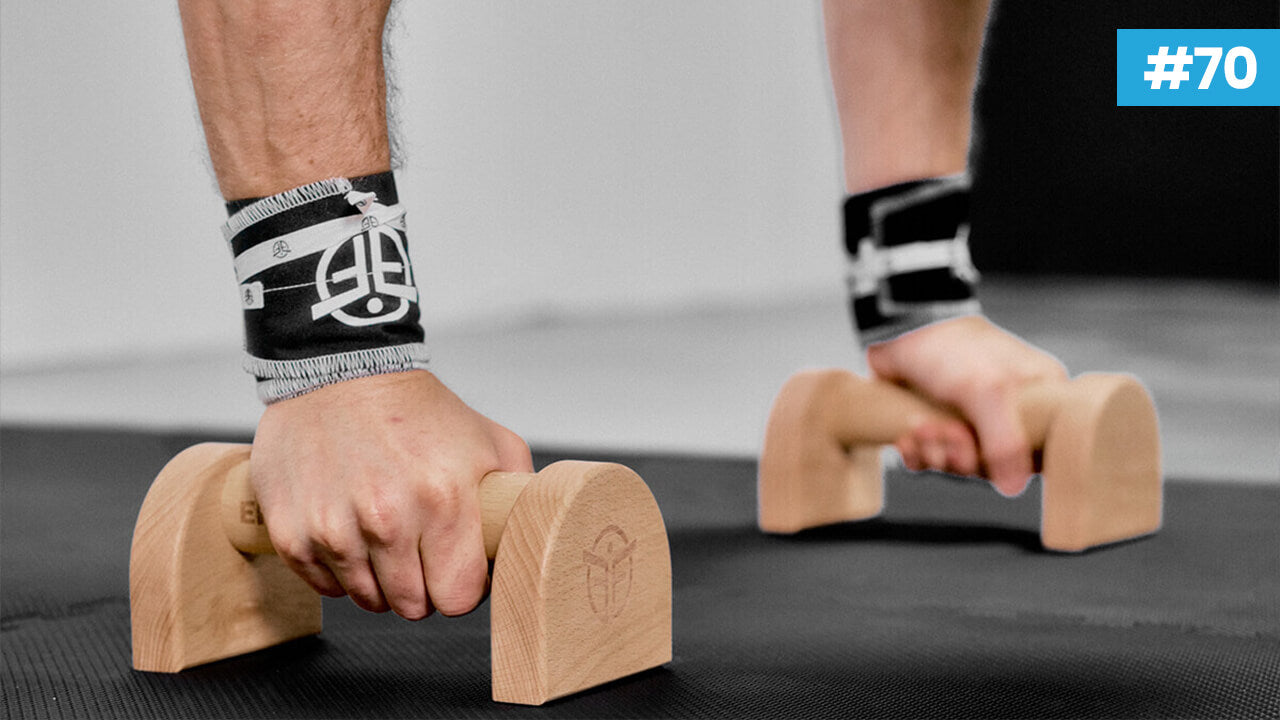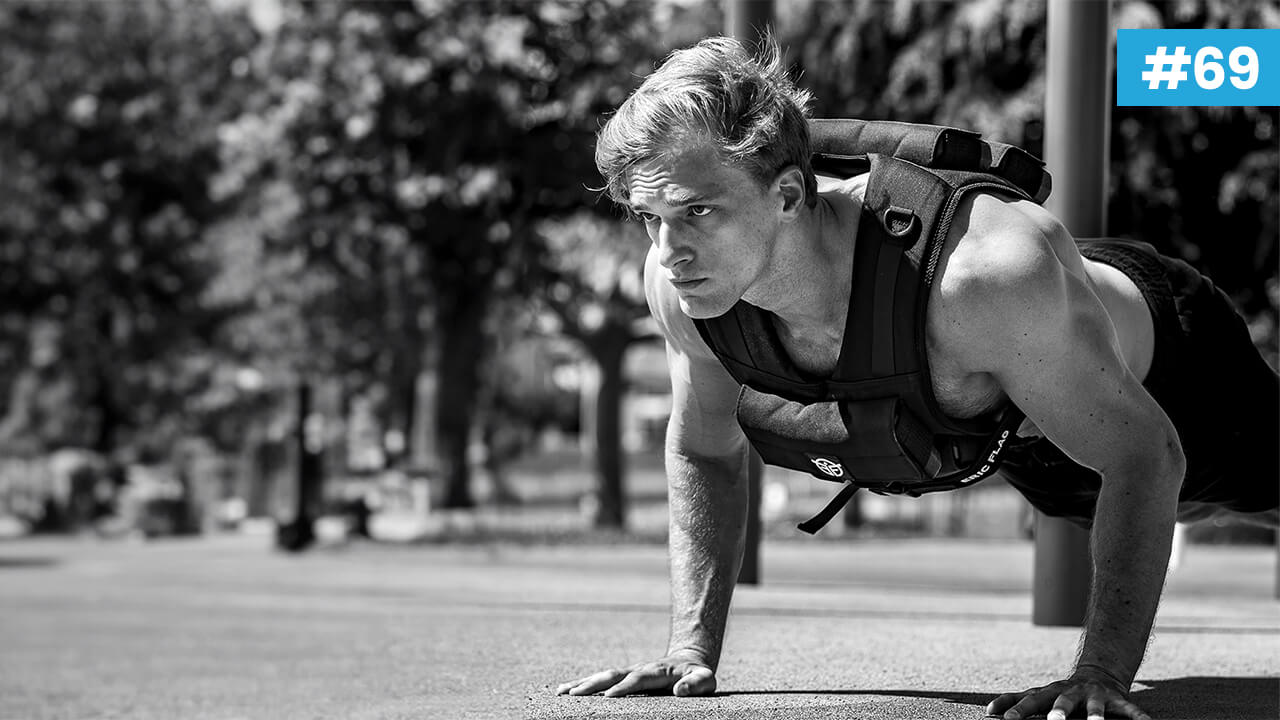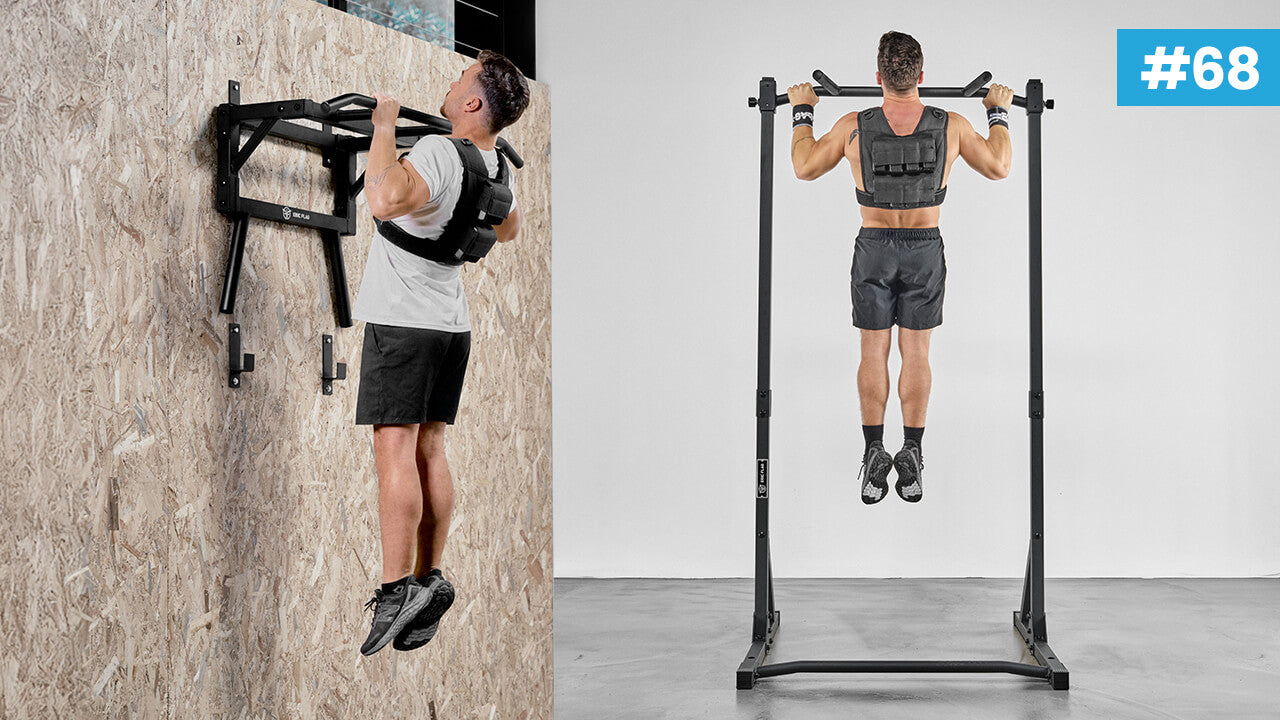Muscle gain: our top tips!
Hi there,
Want to know all about muscle gain? You've come to the right place 💪
Honestly, it's pretty simple and I can even sum it up for you in one sentence: "To gain muscle naturally, your goal is to get stronger and stronger on the bigger exercises."
We'll look at the best exercises to do and the routine to put in place to build muscle.
Structuring your workouts to build muscle
Let's start with the structure of your workouts and, more specifically, the repetition range you should aim for. This is the standard, recognized table that can help a lot in linking objectives to the right range.

Let's get straight to the point: for effective muscle gain, devote at least 80% of your time and effort to working on large polyarticular exercises with sets of 4 to 8 repetitions. The remaining 20% can be devoted to isolation exercises or increasing volume with longer sets.
A good session will include 4 or 5 different exercises with 3 to 4 sets each. Always start your workouts with the most intense exercises in short sets, as these are the most important and you need to be fresh to do them.
Because of their intensity, these exercises will require more rest time between each set.
The aim is to get stronger and stronger, which will require, over the course of your workouts, increasing the intensity to force your body and muscles to adapt. That's why you need to burn extra calories. To do this, use a simple, effective method such as double progression.

Here's the principle: you'll aim to stay within a small range of reps for each exercise in your routine, and as soon as you reach the top of that range, you'll increase the total weight. For example, a routine exercise might be weighted dips for three sets of 4 to 6 reps. The first few times, you'll need to do a few trials to get to know your limits. Then, as soon as one of your sets reaches 6 repetitions, you increase the weight for your three sets in the next session.
The aim is that if today you do 6, 5 and 4 repetitions at 15 kilos, in your next session you'll go up to 17.5 or 20 kilos for your three sets. Your reps will decrease accordingly, and you'll be able to work your way back up to 6 reps, and so on.
The best exercises for muscle gain
Now you need exercises to apply this principle to. Here's a list of what I think are the most effective exercises for you to choose from when creating your routines. I've separated them by main muscle groups.
We'll start with the pectorals, of course, with the bench press and incline press with barbell or dumbbells, which, along with weighted dips, are the best exercises 👇

Let's move on to shoulders with the standing military press and basis 👇

With bodyweight, the progression from pike push-ups to handstand push-ups, which you can even weight down afterwards, will help to make them bigger, just like your arms.


Finally, as the front of the shoulders is often put under a lot of strain, lateral and forward-leaning lifts can help round out the sides and back:

We move on to the back with weighted pull-ups, of course, pronated or supinated depending on what interests us most. Using a weight belt will be optimal! 💪

We add the deadliftan incomparable exercise in brute force:

Horizontal pulling with a barbell or dumbbell:


For the lower body, there is of course the free bar squat and its frontal variation:

The leg press, often seen :

The weighted pistol squat is less common, as are the split squat and barbell or dumbbell lunges:

In terms of insulation, the curls machine and, of course, if you're concerned about the size of your calvesto make them sit at the press or stand at the bar:


For the trunk and the absThere are, of course, dozens of exercises, but in my opinion, these are more than enough alongside the rest.
The leg lifts which you can also weight down:

Weighted pulley crunches:


We finish quickly with the arms, which are already very well worked with bodyweight exercises such as dips and handstand push-ups.
But if you want to isolate your biceps or triceps my two favorite exercises are the curls at the bar and the extended triceps extensions which allow for progressive overloading:


So much for the exercises, as you can see, lots of free weights, because it's possible to gain mass purely by bodyweight without using weights or using ballast, but it's slower.
It's more complicated to set up and measure, and therefore less efficient in my opinion, plus for the lower body, it's really very limited.
I'll go over a few more important points.
How often should I train to gain muscle?
For training frequency, 3 to 4 times a week is ideal. However, this also depends on your schedule and your ability to recover properly.
Recovery, i.e. everything you do outside sport, is very important. There's an element of genetics, of course, but there are also many factors over which you have some control.
Your nutrition plays a crucial role. Make sure you eat enough and in a balanced way to support your physical efforts.
In addition, the quantity and quality of your sleep are essential. Good sleep allows your body to repair and strengthen itself.
Finally, your day-to-day stress levels can greatly affect your recovery and performance. Try to manage your stress to optimize your results.
What about cardio?
From the point of view of pure muscle gain, cardio isn't very useful, but in moderate quantities it's not a bad thing. You may need it for some of the sports you do on the side. But let's face it: being muscular and heavy isn't much help when it comes to running long and hard.
So it's important to clearly define your priority objective and balance your training accordingly.
A complete muscle-building routine
We'll now move on to the complete muscle-building routine I've prepared, suitable for beginners and intermediates, i.e. virtually everyone. It consists of 2 sessions, one push and one pull, to be alternated with, if possible, at least one day's rest between each.
I recommend doing it 3 times a week, or possibly every other day.
Here are the details of the two sessions of this routine:



This is pretty much the routine I followed myself when I finally figured out how to train, and it gave me great results. Of course, the purpose of this article is to help you create your own routine 💪
Don't hesitate to do so, or to modify your workout, particularly the isolation exercises, according to your preferences or to focus more precisely on your weak points.
A very important point: in your workouts, always aim to do better than last time. It's therefore absolutely essential to know what you did last time, and to write down your performance at each session.
That's the end of this article on muscle building, thank you for reading, I hope you find it useful.
See you soon,
Eric Flag





Leave a comment
This site is protected by hCaptcha, and hCaptcha's Privacy Policy and Terms of Service apply.